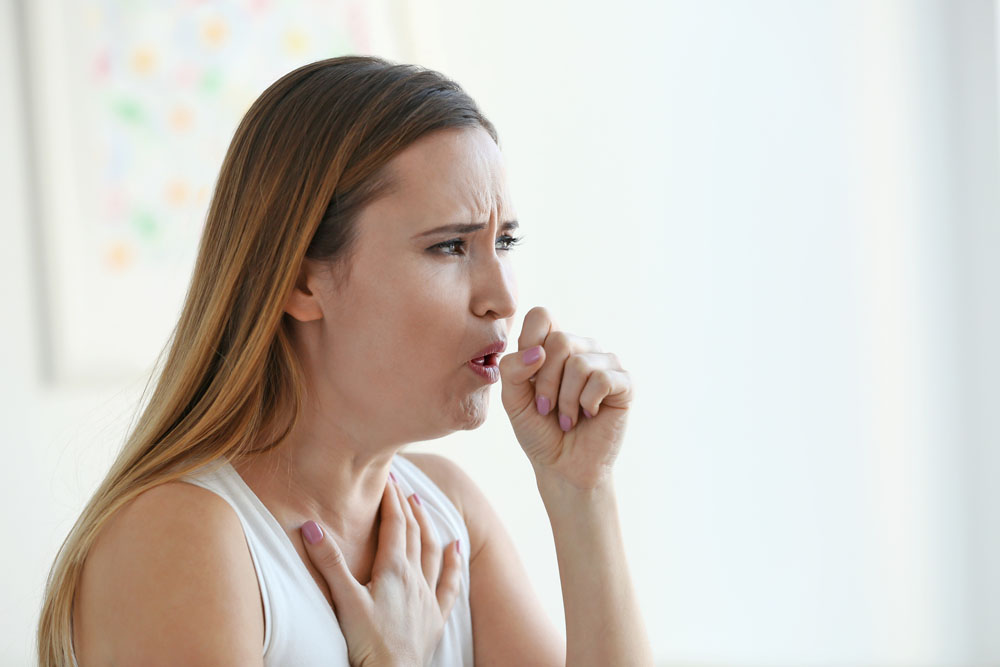The dangers from smoking cigarettes are well-known and documented. If you pick up a pack of cigarettes, there’s a warning right on the packaging from the Surgeon General that states, “Smoking causes lung cancer, heart disease, emphysema, and may complicate pregnancy.” However, what some people may not realize is that there are just as many dangers to non-smokers that may be exposed to secondhand smoke.
For a pulmonologist in New York City, consult with Dr. Shukla to discuss asthma treatment, along with other common breathing problems to get you on the road to healthy living.
What is Secondhand Smoke?
Secondhand smoke (also known as “SHS” or “environmental tobacco smoke”) refers to the inhalation of smoke emitted from burning tobacco in two potential forms. The first is mainstream smoke, which is the tobacco smoke exhaled by someone smoking a cigarette. The other is what is known as sidestream smoke, which is smoke that’s emitted from a cigarette, pipe or cigar that is lit, or even a hookah that may be burning tobacco. When one is exposed to secondhand smoke, they are effectively involuntarily smoking or “passive smoking”.
What are the Risks of Secondhand Smoke?
As noted above, by being exposed to secondhand smoke, non-smokers are effectively smoking. However, it’s worse than if you were smoking tobacco directly, particularly if you inhale sidestream smoke. The reason for this is because this type of smoke contains higher concentrations of carcinogens. Carcinogens are the toxic chemicals found in tobacco that cause cancer. The sidestream smoke contains smaller particles than mainstream smoke does, which then makes it easier to enter the body’s cells.
The potential dangers of secondhand smoke to a non-smoker include:
- Several types of cancer (not just lung cancer)
- Lymphoma
- Leukemia
- Brain tumors
- Heart attacks
- Strokes
- Cataracts
- Asthma
- Depression
And, of course, there are several dangers and risks to pregnant women, including miscarriage and premature birth.
The end-all, be-all danger of secondhand smoke as a result of all of the above potential health risks is death.
Prevention
The American Lung Association estimates that there are over 41,000 deaths per year related to secondhand smoke. The evidence of the dangers is clear. As a result, there are no safe levels for consumption of secondhand smoke. What this means is that in order to prevent the potential effects of secondhand smoke it is important to take deliberate and necessary precautions to avoid exposure to secondhand smoke.
First and foremost, if you smoke tobacco, do your part to take actions to help you quit the habit. If you have children around, in particular, not only are you needlessly exposing your children to the dangers of secondhand smoke, but you are also potentially influencing them to want to try smoking someday and pick up the habit. At the very minimum, help create a smoke-free home by smoking outside, keeping a safe distance of no less than 20 feet away, and avoid smoking in front of your children. Furthermore, you should avoid smoking inside a vehicle whenever you have passengers in the car, particularly minors. Legislation has been introduced to prohibit smoking inside a vehicle while riding with a minor. Keep in mind, New York has laws passed about where you are allowed to smoke. Currently, smoking is prohibited in public parks, beaches, and in busy public areas like Times Square.
While there’s a citywide ban for smoking in restaurants, cafes, and bars, there are some restaurants and other locations where smoking may be allowed throughout New York and if you visit another state. Avoid exposing yourself or your children to secondhand smoke whenever possible. You do not have to aggressively approach anyone that is smoking. Simply do what you can to avoid the secondhand smoke and, if necessary, feel free to speak up to management or even leave the establishment if you must.
Pulmonologist in New York City
While the impact of secondhand smoke is clear, the good news is that there are things that you can do to prevent it from negatively affecting you and your health. If you suffer from conditions like asthma or allergies, contact Dr. Shukla, the top pulmonologist in New York City, today at (917) 935-4864 or by e-mail at info@drmayankshukla.com to schedule an appointment.

